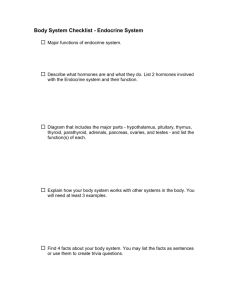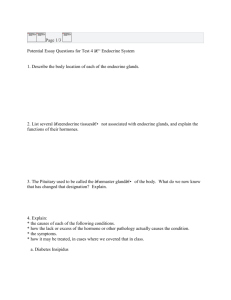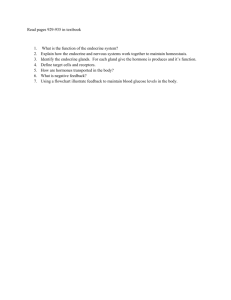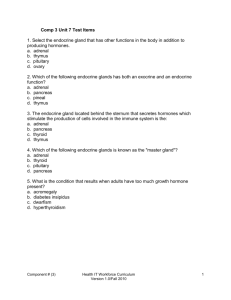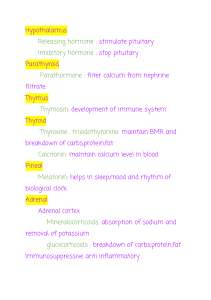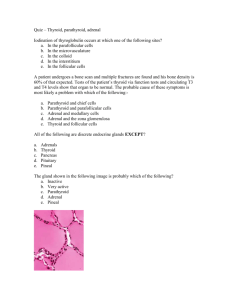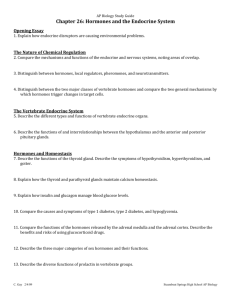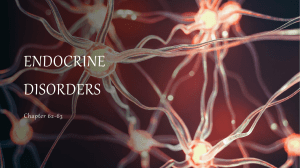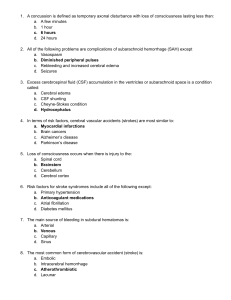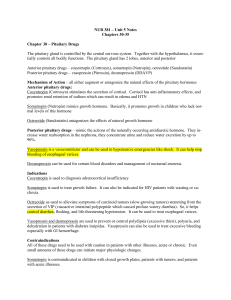BIOL242 Endocrine Histology Lab #33 Lab 27 Endocrine System
advertisement
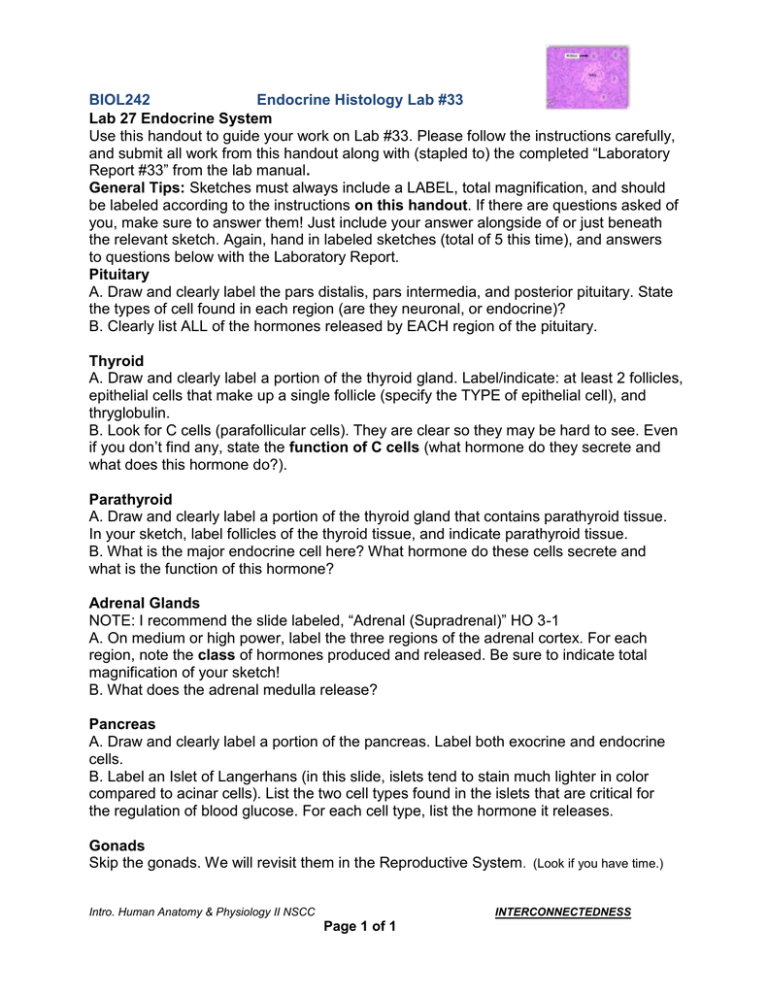
BIOL242 Endocrine Histology Lab #33 Lab 27 Endocrine System Use this handout to guide your work on Lab #33. Please follow the instructions carefully, and submit all work from this handout along with (stapled to) the completed “Laboratory Report #33” from the lab manual. General Tips: Sketches must always include a LABEL, total magnification, and should be labeled according to the instructions on this handout. If there are questions asked of you, make sure to answer them! Just include your answer alongside of or just beneath the relevant sketch. Again, hand in labeled sketches (total of 5 this time), and answers to questions below with the Laboratory Report. Pituitary A. Draw and clearly label the pars distalis, pars intermedia, and posterior pituitary. State the types of cell found in each region (are they neuronal, or endocrine)? B. Clearly list ALL of the hormones released by EACH region of the pituitary. Thyroid A. Draw and clearly label a portion of the thyroid gland. Label/indicate: at least 2 follicles, epithelial cells that make up a single follicle (specify the TYPE of epithelial cell), and thryglobulin. B. Look for C cells (parafollicular cells). They are clear so they may be hard to see. Even if you don’t find any, state the function of C cells (what hormone do they secrete and what does this hormone do?). Parathyroid A. Draw and clearly label a portion of the thyroid gland that contains parathyroid tissue. In your sketch, label follicles of the thyroid tissue, and indicate parathyroid tissue. B. What is the major endocrine cell here? What hormone do these cells secrete and what is the function of this hormone? Adrenal Glands NOTE: I recommend the slide labeled, “Adrenal (Supradrenal)” HO 3-1 A. On medium or high power, label the three regions of the adrenal cortex. For each region, note the class of hormones produced and released. Be sure to indicate total magnification of your sketch! B. What does the adrenal medulla release? Pancreas A. Draw and clearly label a portion of the pancreas. Label both exocrine and endocrine cells. B. Label an Islet of Langerhans (in this slide, islets tend to stain much lighter in color compared to acinar cells). List the two cell types found in the islets that are critical for the regulation of blood glucose. For each cell type, list the hormone it releases. Gonads Skip the gonads. We will revisit them in the Reproductive System. (Look if you have time.) Intro. Human Anatomy & Physiology II NSCC INTERCONNECTEDNESS Page 1 of 1

